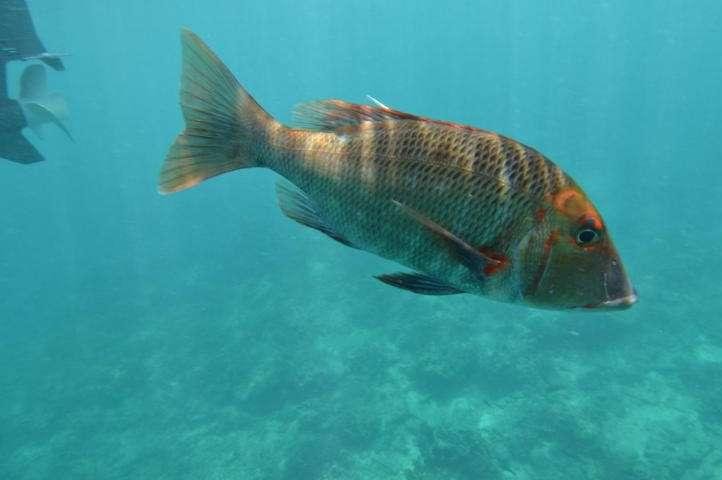A redthroated emperor fish seeks cooler waters away from the surface. Photo by James Cook University
CAIRNS, Australia, Aug. 7 (UPI) -- Humans retreat inside and blast the air conditioning when it's hot, but fish don't have such a luxury. New research shows a common predator species off the Australian coast dives deeper to avoid rising water temperatures.
Scientists at James Cook University tagged and tracked 60 redthroat emperor fish, plotting their movements and swimming depths for nearly a year.
The data points showed fish absent from their typical hunting grounds along the reef slope on warmer days. Scientists say the specimens spread out along deeper depths. Researchers looked at other factors off the coast of Heron Island in the southern Great Barrier Reef that might explain the movement -- air pressure, rainfall, wind and moon phases -- but only temperature revealed a correlation.
While most research has looked at how climate change and warming oceans might affect the biology of fish populations, this is one of the first studies to look specifically at species distribution.
"This is a commercially important fish and we are looking at a significant depth shift," lead researcher Leanne Currey said in a press release.
Behind coral trout, redthroat emperor fish are the most popular recreational and commercial fish off the coast of Australia.
"If it's not around in the shallows in the future then fishers will have to redirect their efforts and it may be significantly harder to catch them," Currey said.
Currey and her colleagues are now trying to understand whether the species will be able to adapt physiologically to warmer temperature, or if the species will just be pushed deeper more often.
A new paper on the species' warm weather behavior was published in the journal Coral Reefs.















